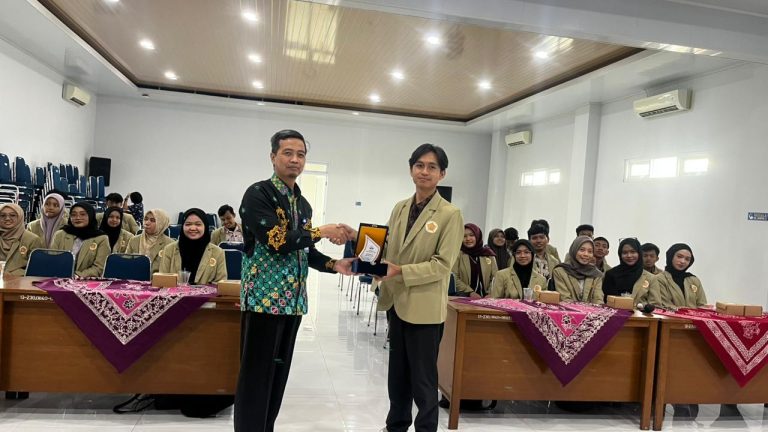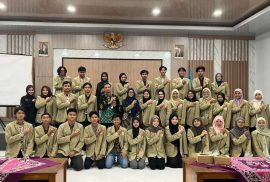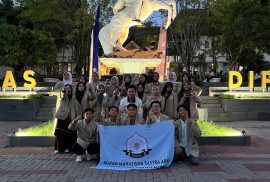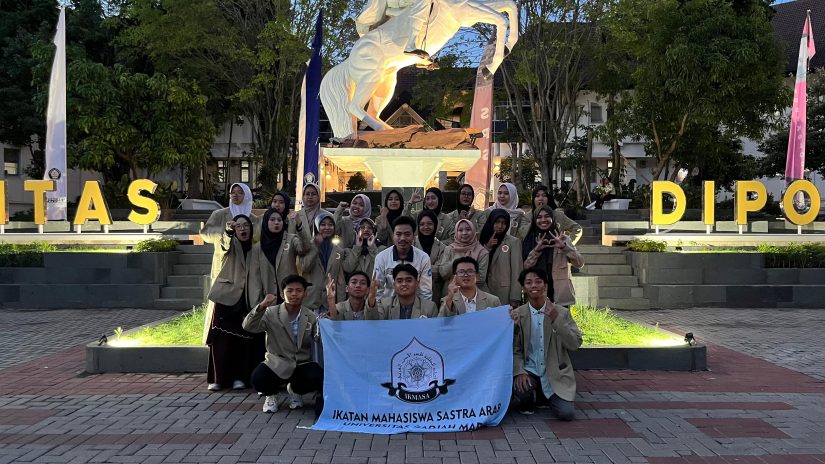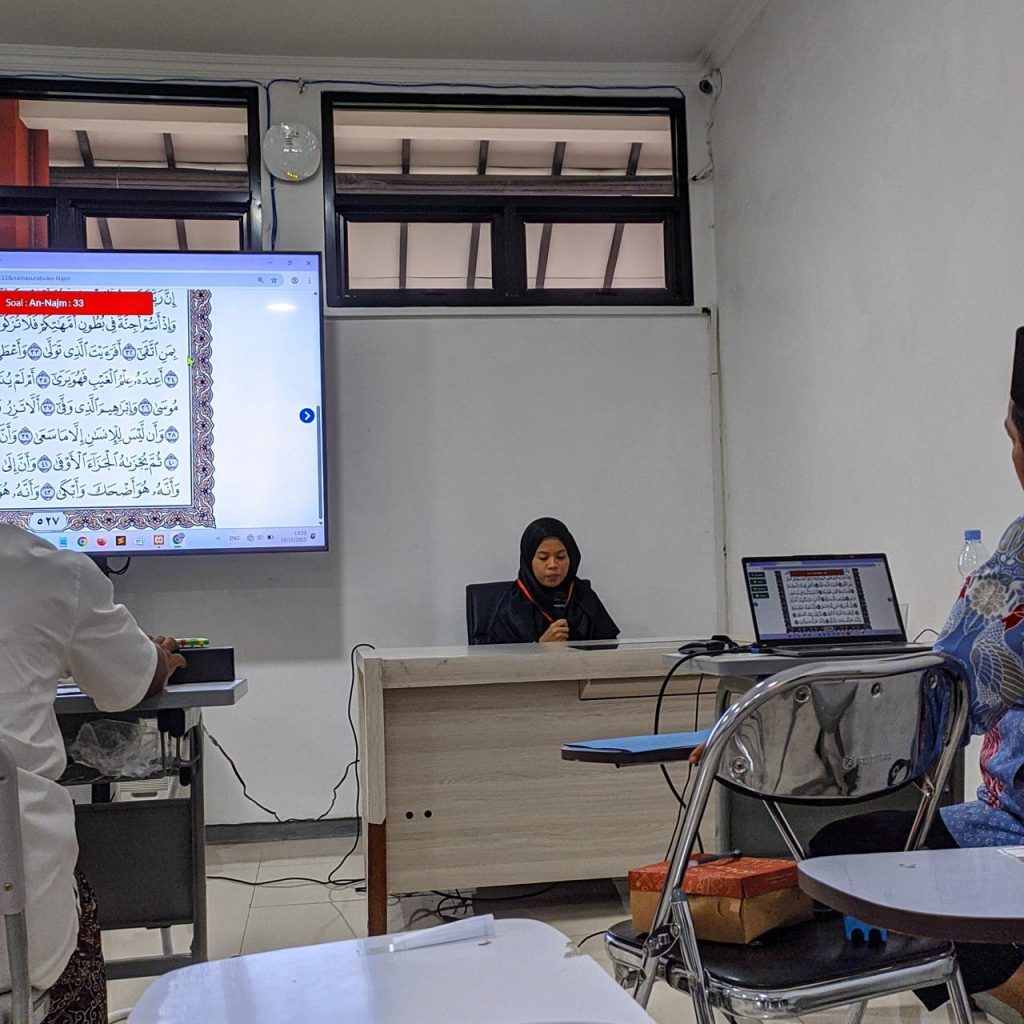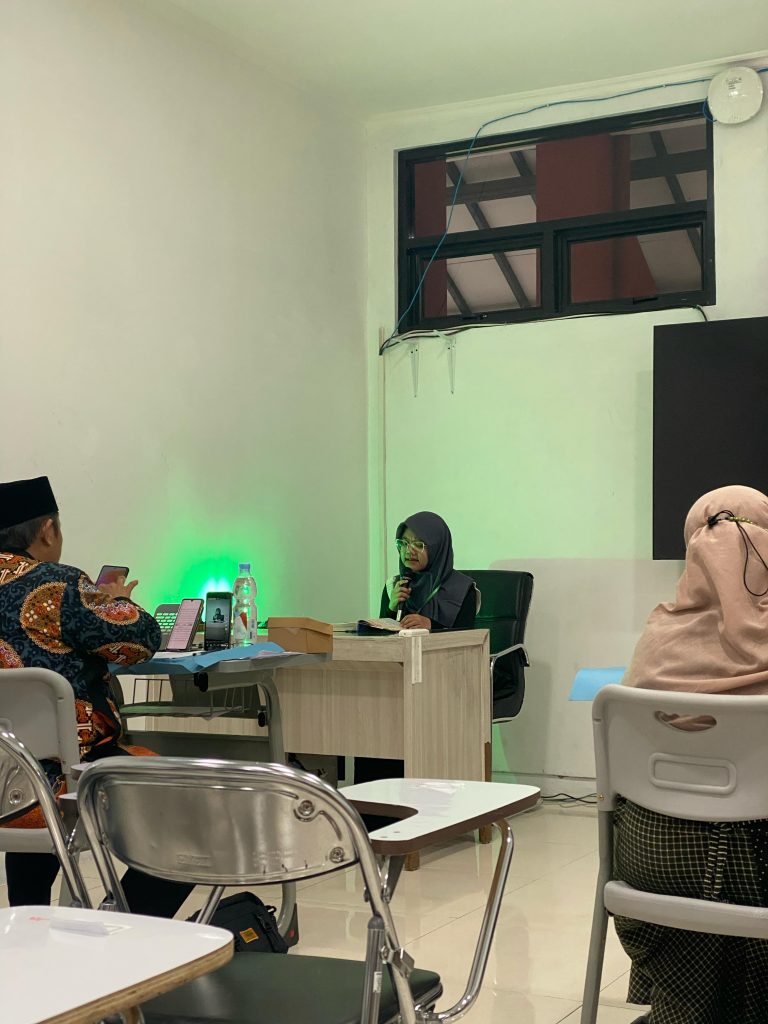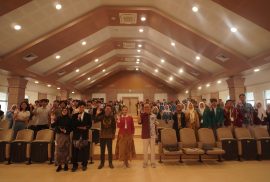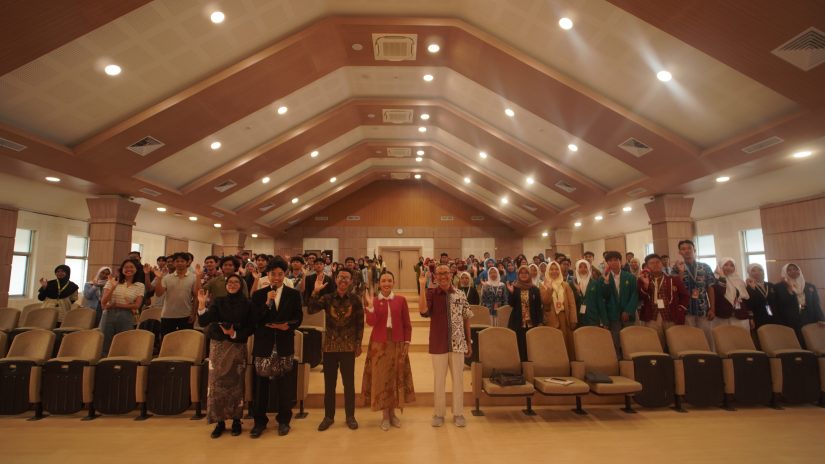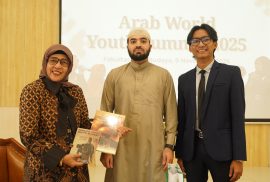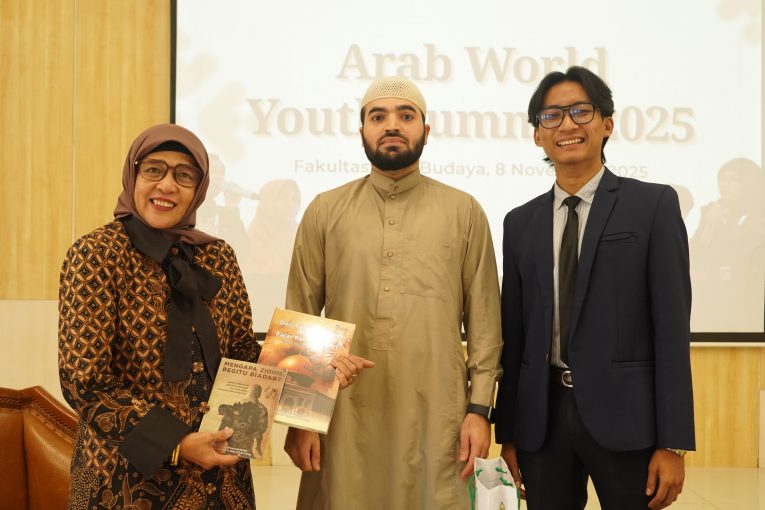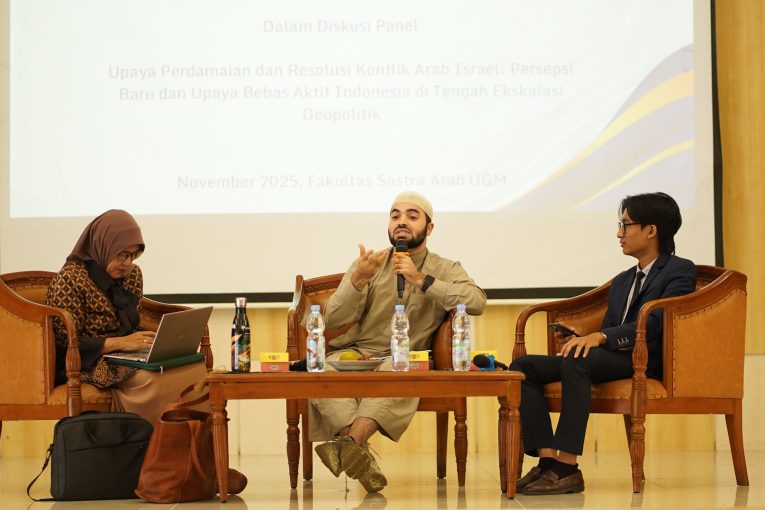IKMASA Government Tour: UGM Arabic Study Program Students Visit the Language Center of Yogyakarta Special Region
Berita (inggris)IKMASAStudent Activity Thursday, 27 November 2025
IKMASA Government Tour: UGM Arabic Study Program Students Visit the Language Center of Yogyakarta Special Region
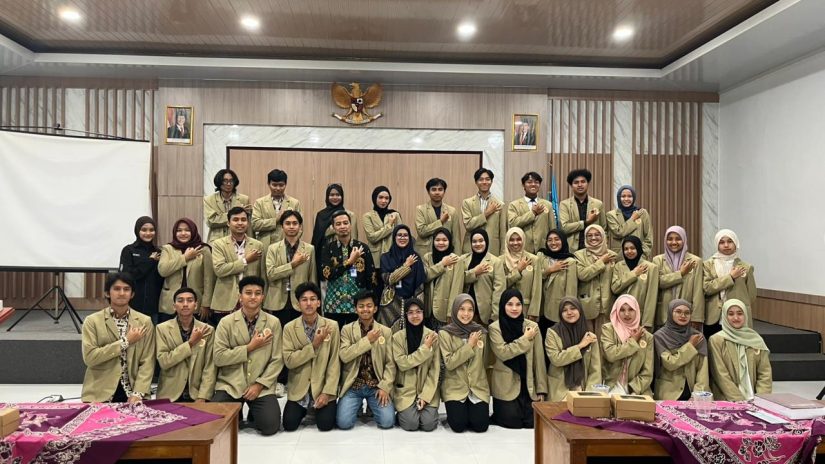
Yogyakarta, November 14, 2025 — The Arabic Study Program Student Association (IKMASA) at Universitas Gadjah Mada conducted a Government Tour as part of the 2025 External Relations Department’s flagship program. The visit, held from 13:30 to 15:00 WIB, involved 40 students from the 2023, 2024, and 2025 cohorts. The delegation was warmly welcomed by the Language Center of the Special Region of Yogyakarta (BBY), reflecting the institution’s appreciation for student-led educational initiatives.
The event opened with remarks from Candra Solihin, the 2025 President of IKMASA, who emphasized the importance of institutional visits in broadening academic insight and fostering early professional networking. The agenda continued under the guidance of the master of ceremonies, Rusydatu Nibras Salamah, ensuring the program ran smoothly and in order. The atmosphere grew more engaging when participants were invited to enjoy refreshments prepared by BBY.
During the main session, Mulyanto, M.Hum., Senior Expert Linguist at the institution, delivered an informative presentation outlining the history of the Language Center, its institutional roles, and various strategic programs carried out to support language development and literacy initiatives across the Yogyakarta region. He also highlighted internship opportunities available for students interested in pursuing linguistic research and institutional language work.
Throughout the visit, students demonstrated strong enthusiasm, actively engaging in discussions about language programs, research opportunities, and potential pathways for student involvement in BBY’s activities. This Government Tour is expected to serve as a meaningful platform for UGM Arabic Study Program students to expand their professional network, gain firsthand exposure to applied language work, and explore future collaborative possibilities with the Language Center.
Author: IKMASA UGM
#IKMASAUGM
#GOVERNMENTTOUR
#BALAIBAHASADIY
#FIBUGM
#SDGs4QualityEducation
#SDGs11SustainableCitiesandCommunities
#SDGs17PartnershipForTheGoals
